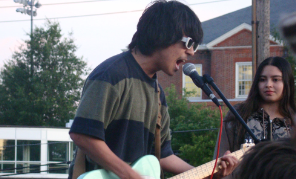Many high schools are plagued with this infectious mindset, and WJ is no exception. “Senioritis” as it’s called, is the decline of motivation or performance for students during their final year of high school. Though this term is usually used in a joking manner, for some, it’s a serious problem.
Turning in assignments late or not doing them at all, failing test after test and not showing up to class are reinforced by many peers as normal behavior due to senioritis. It’s hard to change this culture of senioritis once it’s already widely accepted, but it should be common knowledge that there are major consequences of falling into this rabbit hole.
Though there should be deserved time off after a long three years of studying, a good balance between having fun and locking in on assignments should be found. Having these good habits in place puts students in a good position to succeed in college, where independence is more apparent than ever.
Teachers have seen this drop off in productivity in their seniors and wanted to get to the root of the problem.
“Seniors especially want to work hard in the first quarter… but as early decision and action letters come in they start to think they don’t need to work as hard as they’re already committing to colleges,” 12th grade English teacher Ashley Herdman said.
As we see this drop in motivation when students get into college, the real problem starts to become the bad habits students pick up in this stage before they start attending.
“Senioritis is a bad habit and it takes a routine or schedules over a long period of time to build a good or bad habit. It’s not just a switch you can turn on and off, it’s a process,” Herdman said.
That’s the key to preparing students for college, making sure that they can find that balance between their schoolwork, leisure activities, and responsibilities outside of school.
“I make sure I have all the required work for school out of the way first and then I can do what I need to do outside of school whether that be leisure activities, extracurriculars, and etc,” senior Makis Manolis-Oraiopoulos said.
For many, what Manolis-Oraipolous described is manageable but as previously stated, the culture of senioritis looming and the bad habits it creates, makes students increasingly less motivated.
“I’ve had trouble finding the motivation to do my work on time instead of turning it in by the end of the quarter…but seeing my grades struggle and knowing the consequences of this behavior has motivated me to try harder,” senior Kevin Lukash said.














